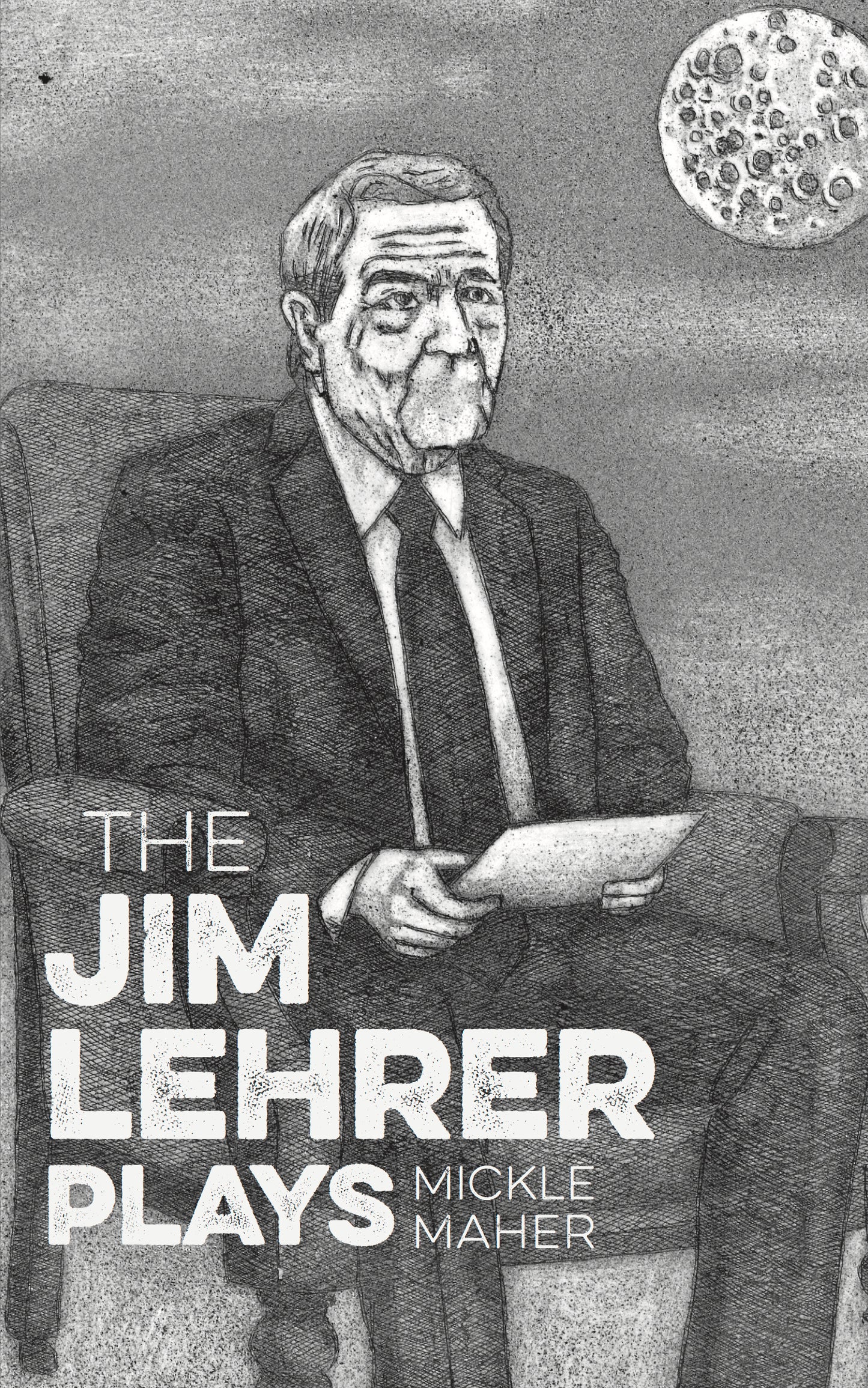The Jim Lehrer Plays
The Jim Lehrer Plays
Couldn't load pickup availability
The Jim Lehrer Plays
Mickle Maher
$14.95
It's the first debate of the 2004 presidential campaign and President George W. Bush is determined to kill PBS news anchor Jim Lehrer live on stage. His opponent, Senator Kerry, agrees Lehrer should die—"Indeed, what else tonight besides the manner of Jim Lehrer's execution could be of interest to any man?"—but disagrees on the matter of when and where. 12 years later, Jim Lehrer sits alone in his spacious and indifferently furnished DC suburban home narrating to himself the news of the day. That is until his roommate—also Jim Lehrer—rushes in to warn him of an angry mob descending on their location. Collected here for the first time, Chicago playwright Mickle Maher's The Jim Lehrer Plays—The Strangerer and Jim Lehrer and the Theater and its Double and Jim Lehrer's Double—connect and critique their times' political insanities while pulling inspiration from Camus, Artaud, and Maher's favorite news personality, Jim Lehrer.
Absurdist, Politics, Comedy
Cast: 3M
Cover art by Friese Undine
PRAISE
As the world of our politics keeps getting weirder, it's still trying to keep up with Mickle Maher's wrenchingly funny play. The Strangerer is here to prove that fiction can hold its own in the everlasting race with truth to the deepest depths of the very, very strange.
—Austin Pendleton
In a time when reality is cynically dismissed as fake, Mickle Maher creates theater that questions what the nature of reality really is with ingenious language, mordant satire, and a stab in the heart of the dark, slippery truth.
—Brian Azzarello
One wants to shake Maher and shout, Why the hell Lehrer? Lehrer in his prime, Lehrer murdered, Lehrer multiplied, Lehrer formerly of PBS NewsHour, Lehrer with knives, Lehrer older, lonelier, dumber. With this icon of probity, Maher expresses our political and existential rage, our ironic amusement, and inappropriate musings. This absurdist, hilarious, deadpan set of pieces is brilliant.
—Deb Olin Unferth
I like The Strangerer because it picks as its subject an ominous but rather unassuming historical event—complete with its iconic personas and political landscape—to make a stratospheric jump into either the absurd or the hyperreal. Its existential scope poses a challenge to what we call a play in order to interrogate. It's like: what are we even doing?
—Richard Maxwell
Share

